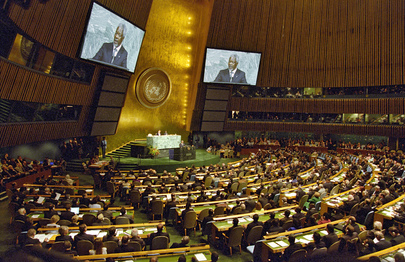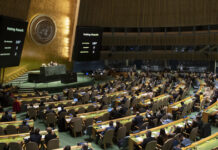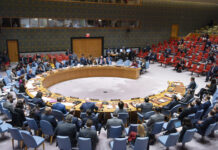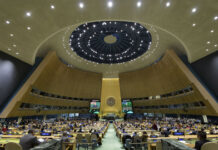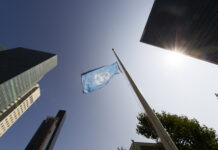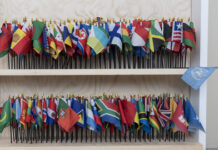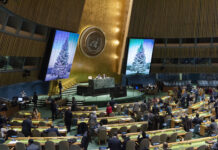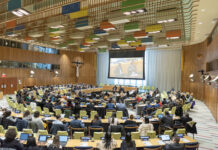This is the News in Brief from the United Nations.
Israeli operation in Rafah would have ‘dire humanitarian consequences’
Any military operation by Israeli forces against Rafah, where well over a million civilians are sheltering, would have dire humanitarian consequences, the UN’s Senior Humanitarian and Reconstruction Coordinator for Gaza said on Monday.
Sigrid Kaag was speaking to reporters after briefing the European Council of Foreign Ministers on the effort she is leading to expedite aid into the Strip and negotiations over a mechanism to monitor lifesaving supplies.
She said ministers expressed strong support for the humanitarian work being done by the UN and partners on the ground.
Israel’s defence minister reportedly said on Sunday that if the remaining hostages seized during the Hamas-led terror attacks of 7 October were not released by the start of the Muslim holy month of Ramadan in March, Israeli forces would enter what is the last refuge for half of the enclave’s population.
Ms. Kaag said any extension of operations into Rafah would be disastrous for innocent civilians.
The potential consequences of such an operation at present time would be disastrous. There are more than a million people crammed in Rafah. It’s not intended for a million people in shelters. Health conditions are very worrisome. We know that aid is not sufficient to get in. It’s harder and harder to distribute. We also have to acknowledge the fact that the security conditions, separate from military operations, due to what is called self-distribution by desperate civilians, but also looting and criminalization, is hampering efforts by the humanitarian community – UN and international or local [non-governmental organizations] NGOs – to deliver assistance to the people that actually need it. It is deeply, deeply troubling.
25 million battle hunger due to Sudan war
At least 25 million people are struggling with soaring rates of hunger and malnutrition as the crisis arising from the war in Sudan sends shockwaves around the region, the UN World Food Programme (WFP) warned on Monday.
Thousands of families continue to be displaced and forced across borders into Chad and South Sudan each week while fighting between Government forces and the powerful RSF militia which erupted last April continues.
WFP Regional Director Michael Dunford said the crisis impacting Sudan, South Sudan and Chad has created “the world’s largest displacement crisis”.
He added that the mostly women and children crossing the border have no resources of their own.
There are 18 million acutely food insecure people within the country, and around 3.8 million Sudanese children under five are malnourished.
Most are trapped in areas of active fighting where WFP and other aid agencies are struggling to maintain consistent access.
Human rights must guide transition to ‘durable peace’: UN rights experts
Staying in the region, South Sudan’s leaders must carefully navigate the period of transition towards “durable peace”, preventing further violence and gross human rights violations, the UN Commission on Human Rights in South Sudan said on Monday.
The UN Human Rights Council-appointed independent investigators have just carried out their 12th visit to the country.
Yasmin Sooka, Chairperson of the Commission, said it was essential for Juba to create a unified national army and transitional justice processes to deal with the root causes of the conflict.
“Our investigations have found that the violence and gross human rights violations continue with impunity, with women and children being the main target of these crimes,” she said.
Independence of the judiciary and joint security arrangements with constitutional support “are essential to avoid a return to conflict following elections”.
She noted that with elections due to happen next December, none of the processes agreed under the 2018 Revitalized Agreement “were even close to completion”.
Matt Wells, UN News.
Source of original article: United Nations (news.un.org). Photo credit: UN. The content of this article does not necessarily reflect the views or opinion of Global Diaspora News (www.globaldiasporanews.com).
To submit your press release: (https://www.globaldiasporanews.com/pr).
To advertise on Global Diaspora News: (www.globaldiasporanews.com/ads).
Sign up to Global Diaspora News newsletter (https://www.globaldiasporanews.com/newsletter/) to start receiving updates and opportunities directly in your email inbox for free.


